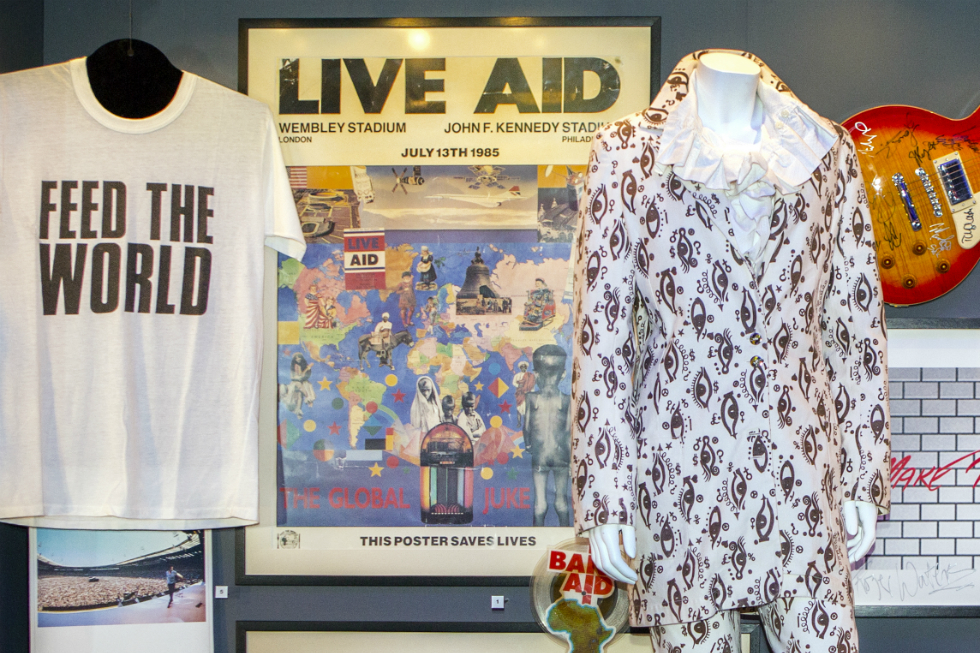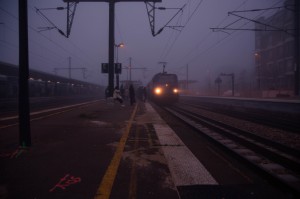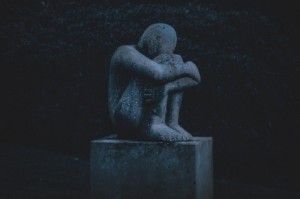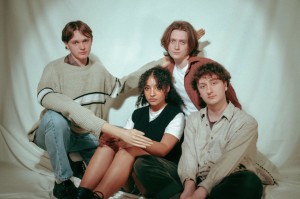“Pivotal moments that changed my life…” Playlist: British Music Experience

Welcome to the British Music Experience: a brand new museum on Liverpool’s waterfront that looks at key musicians and movements from 1945 to the present day. Join its curator, Kevin McManus, for a tour through seven decades of turbulent and exciting musical evolution — via the tracks that shaped his formative years…
The British Music Experience (BME) museum, as you would expect, is full of music from across the decades; songs that I’ve been absorbing whilst getting everything ready for our grand opening earlier this month. So my playlist is based around what I’ve been listening to through research, but it also reflects my own personal, musical memories. We have chosen to only display objects that have real significance at the BME, and hopefully these will stir other people’s memories, too. For those who weren’t around in the 1940s, ’50, ‘60s, ‘70s and ‘80s, I think they will find it fascinating to see how the different genres emerged, and how music was influenced not just by other movements, but also by what was happening (politically, socially) in the UK.
My playlist starts with skiffle and trad jazz in the Post-War period, and I’ve gone for the classic Lonnie Donegan version of Rock Island Line (originally released in 1955). It is a massively important record, and its raw simplicity still sounds sublime. Countless UK musicians cite Lonnie as a big influence, and the biggest band of all time, The Beatles, famously emerged from a skiffle group called The Quarrymen. We actually have on display a 78rpm record of Rock Island Line, loaned to us by The Quarrymen’s Rod Davis, and which was once owned by John Lennon.
One of the ways we showcase the different eras at BME is through costume. In an area dedicated to female stars of the ‘60s, we have two Dusty Springfield dresses, both designed by Eric Plant for Darnell of London. My playlist wouldn’t be complete without Dusty’s version of Wishin’ and Hopin’ (1964). It’s a brilliant Bacharach and David song anyway, but Dusty adds her own magic touch. It’s one of those records that I own, but I’m not quite sure how; I think I inherited it from one of my elder sisters, and I’ve loved it ever since.
Released just one year later, The Who’s I Can’t Explain (1965) couldn’t be more different – two minutes of pop genius.
Our David Bowie collection genuinely makes people’s jaws drop when they see it. Like many others, seeing Bowie sing Starman on Top of the Pops in 1972 was one of those pivotal moments that changed my life. It was only years later, when I was interviewing musicians for NME, that I found out what a profound impact that performance had on so many people. So even though I could pick any number of Bowie tracks for my playlist, I’m sticking with Starman because it’s so important to me. That’s partly why BME is so special; music means so much to people, and hearing a particular piece of music or seeing an outfit or a concert poster can make you remember key moments in your life.
Punk is probably my favourite musical period. I was a teenager, and this raw powerful music, radical fashion and anti-establishment sentiment really appealed to me. Our exhibits include Glen Matlock’s bass, and the original handwritten lyrics to Pretty Vacant. I’ve gone for one of my all-time favourite songs, and the first ever punk single, in the shape of The Damned’s New Rose (1977) – a naïve masterpiece.
As I’ve said, BME places music in the context of what was happening in the UK at the time, and the period around punk and ska is particularly fascinating one. Part of the museum is dedicated to the rise of ska and a celebration of British reggae acts, such as Steel Pulse, Aswad and the Rock Against Racism movement. The Specials are my favourite band to emerge out of the second wave of ska in the 1970s. I first saw The Specials support The Clash at Erics club in Liverpool; they came back a month or so later headlining, with support from a very young bunch of Londoners called Madness. That was around the time of the release of their debut single Gangsters (1979), which, for me, just brings back memories of being 16, going to parties and thinking I was really grown up.
The BME’s collection includes stories from The Rolling Stones, Queen, New Romantics, Live Aid (main pic), heavy metal, girl bands and boy bands, the Britpop era, and lots more. But my second to last track jumps to 1989, with Voodoo Ray by A Guy Called Gerald: classic early acid house. A friend of mine, Peter Coyle, put on some very early acid house club nights in Liverpool at Macmillans, and he got Gerald to DJ one night. I loved house music from the first time I heard it, and started writing about it for NME and Mixmag. Colleagues of mine at the time thought it was a musical fad that would disappear within a year. Tracks like Voodoo Ray changed British club life forever.
Finally, another choice from 1989: Fools Gold by The Stone Roses, evoking memories of brilliant nights out at a time when I was doing loads of work as a journalist, and consequently was out far too much! There’s a famous edition of them appearing on Top of The Pops with this song, and The Happy Mondays were also on with Hallelujah; it felt like Manchester was taking over the world. We have a cabinet dedicated to the Manchester scene which also features New Order and The Smiths. One of my favourite exhibits is the bass guitar loaned to us by Mani, which sits alongside a few tickets from celebrated Stone Roses gigs, including Spike Island. I was there with a load of mates, and it was just one of those special days which brought people together in a really positive, celebratory way.
That kind of sums up the power of music – it brings people together. It helps you celebrate, mourn or protest. All our lives would be poorer without it, and I believe that at the BME we pay a fitting tribute to the strength, complexity, and international impact of British music.
Kevin McManus
Find the British Music Experience at the Cunard Building, Liverpool waterfront — £11–16
Open 9am–9pm Mon–Sat, and 10am–5pm Sun





